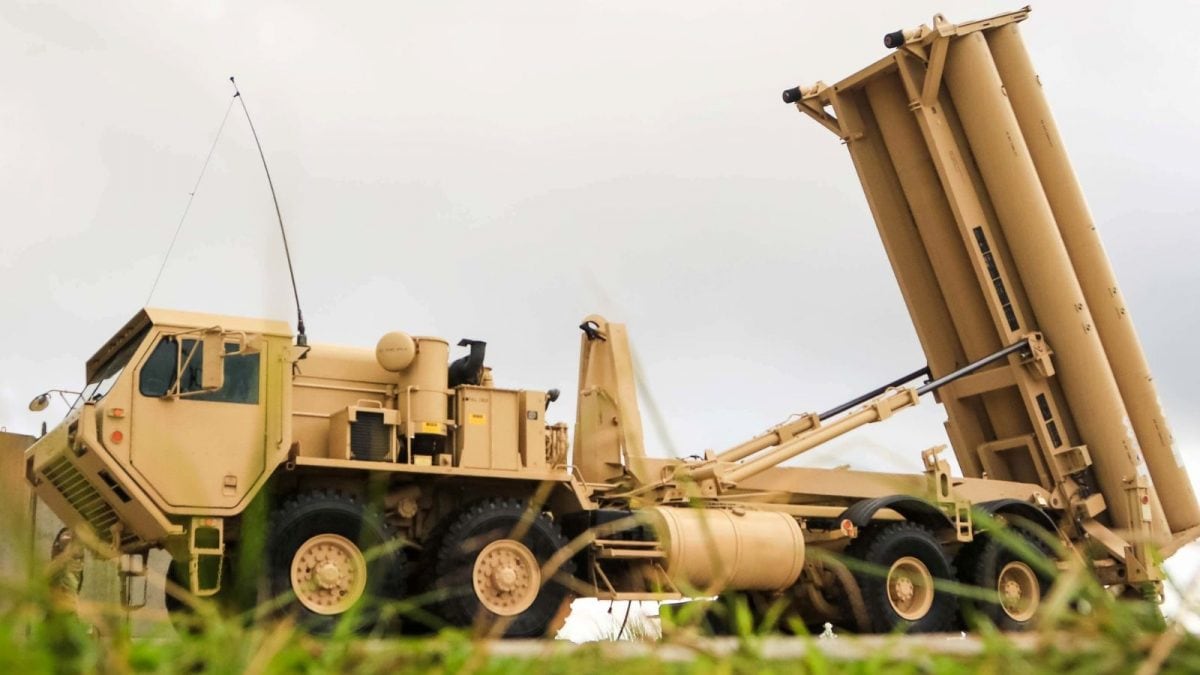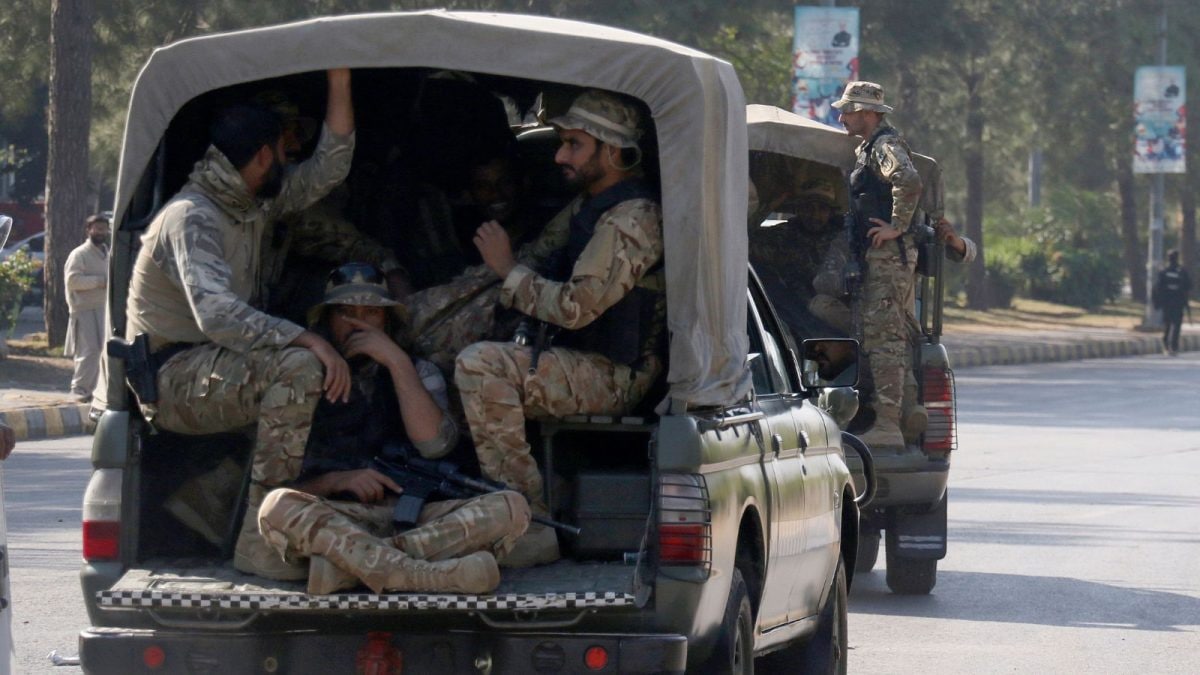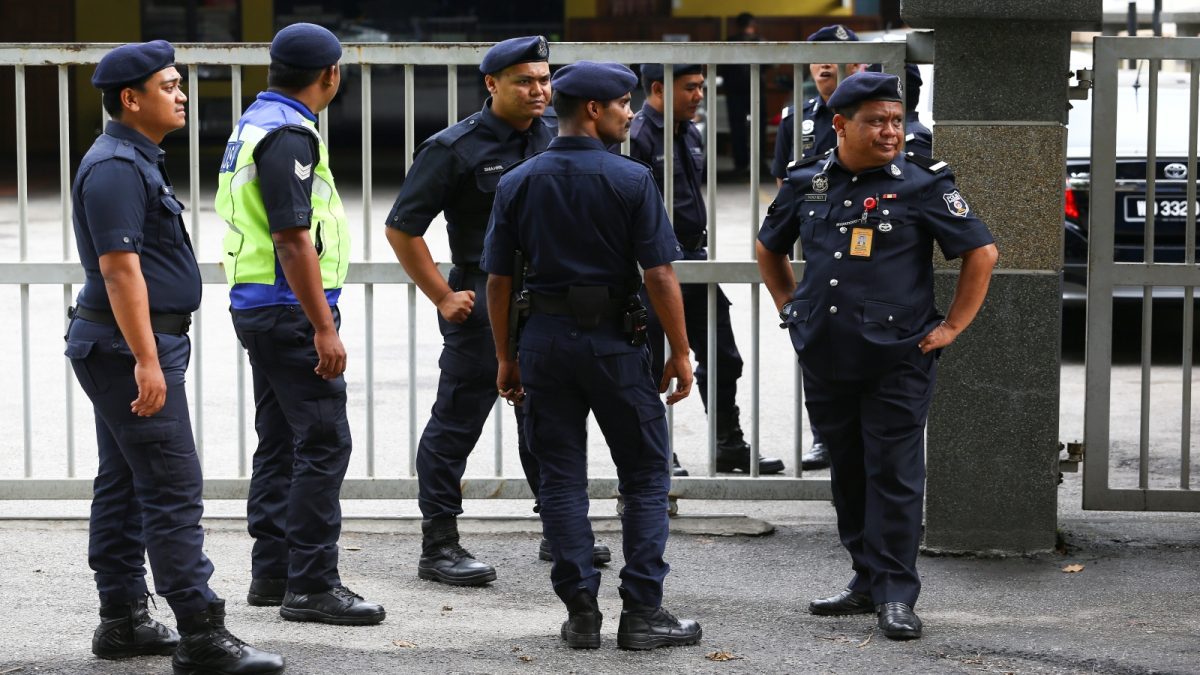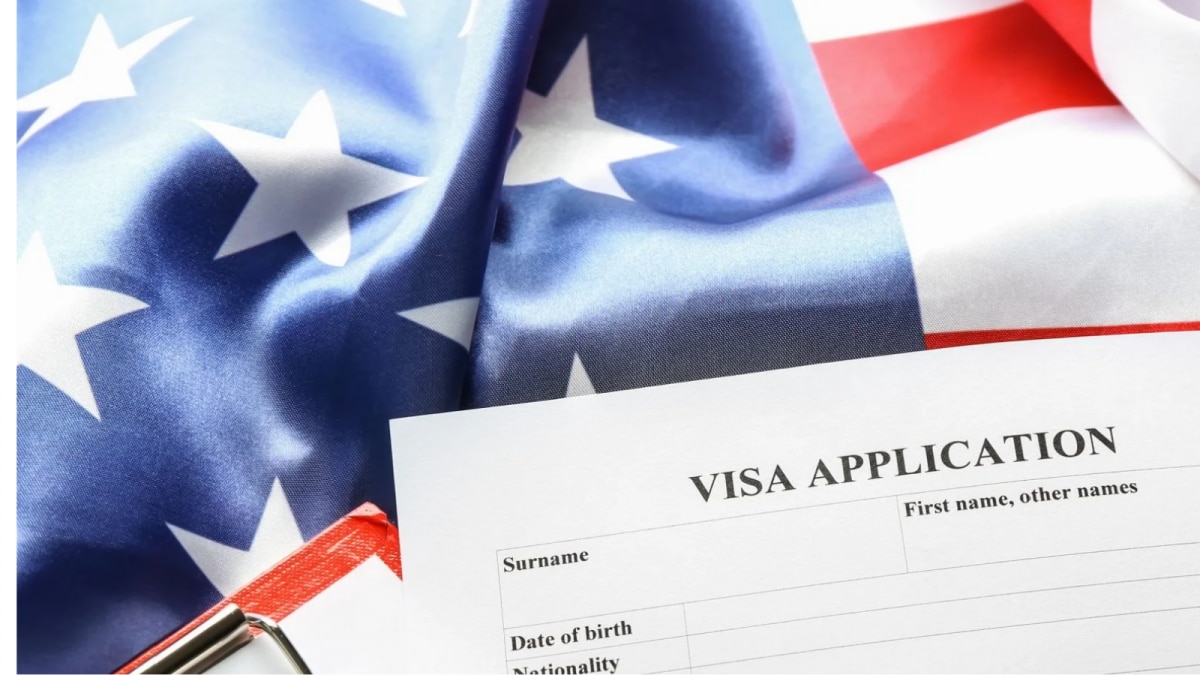The international community's approach to Pakistan presents one of the most glaring contradictions in modern geopolitics. While evidence continues to mount of Pakistan's systematic support for terrorism, the same nation has been entrusted with leading global counter-terrorism efforts at the United Nations.

The international community's approach to Pakistan presents one of the most glaring contradictions in modern geopolitics
The international community's approach to Pakistan presents one of the most glaring contradictions in modern geopolitics. While evidence continues to mount of Pakistan's systematic support for terrorism, the same nation has been entrusted with leading global counter-terrorism efforts at the United Nations. This paradox exposes not just Pakistan's duplicity, but the world's willingness to overlook state-sponsored terrorism when geopolitical convenience demands it.
The architect of terror takes the Chair
In a development that would be laughable if it weren't so dangerous, Pakistan—a country repeatedly labeled as the "global exporter of terror"—has been appointed to chair the United Nations Security Council's Taliban Sanctions Committee in 2025. Simultaneously, it will serve as vice-chair of the Council's Counter-Terrorism Committee. This appointment represents perhaps the most striking example of institutional hypocrisy in international relations, akin to appointing an arsonist as fire chief.
The irony becomes even more pronounced when considering Pakistan's track record. This is the same nation where Osama bin Laden was found hiding near a military academy in Abbottabad, where he was eliminated by US forces in 2011. The discovery of the world's most wanted terrorist living comfortably in Pakistan, within walking distance of the country's premier military institution, should have been a wake-up call for the international community. Instead, it was treated as an unfortunate coincidence rather than evidence of systemic complicity.
A pattern of denial and deception
Pakistan's strategy in dealing with terrorism accusations follows a predictable script that has remained unchanged for decades. When confronted with evidence of harbouring terrorists, Pakistani officials invariably resort to one of three responses: outright denial, claims of mistaken identity, or calls for "neutral investigations." This pattern was on full display during former Foreign Minister Bilawal Bhutto's recent appearance at the United Nations, where he defended Hafiz Abdur Rauf, a designated Lashkar-e-Taiba commander.
Despite photographic evidence showing Rauf leading funeral prayers for killed terrorists, and despite documentation from Pakistan's own military media wing (ISPR) that confirmed his identity matched US Treasury Department terrorist designations, Bhutto maintained that Rauf was merely a "local cleric" who happened to share a name with a sanctioned terrorist. This level of gaslighting would be impressive if it weren't so transparently false.
The evidence against Rauf is overwhelming. His computerised national identity card, shared by Pakistan's own ISPR, shows a date of birth and identification number that exactly match those on the US Treasury Department's Office of Foreign Assets Control (OFAC) list of designated global terrorists. The CNIC also confirms his affiliation with the Pakistan Markazi Muslim League (PMML), designated by the US as a front for Lashkar-e-Taiba. Yet Pakistan's representatives continue to maintain the fiction that this is all a case of mistaken identity.
Seven decades of state-sponsored terror
Pakistan's use of terrorism as a tool of foreign policy is not a recent development but a consistent strategy dating back to the country's independence in 1947. From the very beginning, Pakistan has employed proxy forces to achieve its geopolitical objectives, particularly regarding Kashmir. The tribal militia invasion of Jammu and Kashmir in 1947, Operation Gibraltar in 1965, and the Kargil infiltration in 1999 all followed the same playbook: use non-state actors to provide plausible deniability while pursuing state objectives through violence.
This strategy has evolved and intensified over the decades. Pakistan has created, trained, and armed multiple terror groups including Lashkar-e-Taiba, Jaish-e-Mohammad, and others that have carried out devastating attacks not just in India but across the globe. The 2008 Mumbai attacks, which killed 166 people, stand as perhaps the most brazen example of Pakistan's proxy warfare. Despite overwhelming evidence of Pakistani involvement, including captured terrorist Ajmal Kasab's confession and intercepted communications, Pakistan has steadfastly refused to prosecute the masterminds who continue to operate freely on its soil.
The pattern is consistent across multiple attacks: the 1993 Mumbai blasts whose mastermind Dawood Ibrahim is still sheltered in Pakistan, the 2001 Indian Parliament attack, the 2016 Pathankot airbase attack, and the 2019 Pulwama bombing that killed 40 Indian paramilitary personnel. In each case, Pakistan follows the same script—deny involvement, obstruct investigations, ignore legal requests for information, and eventually claim to be a victim of terrorism itself.
The economic dimension of complicity
Pakistan's recent diplomatic breakthrough with Afghanistan, mediated by China, reveals another layer of the international community's complicity in Pakistan's terror enterprise. The agreement to reinstate diplomatic ties and invite Afghanistan to join the China-Pakistan Economic Corridor (CPEC) demonstrates how economic interests can override security concerns and moral considerations.
China's role as mediator is particularly telling. Despite being well aware of Pakistan's terror connections—Chinese nationals have been repeatedly targeted by Pakistan-based militants—Beijing continues to invest billions in CPEC projects. The calculation is purely transactional: China values Pakistan's strategic location and willingness to serve as a conduit for Chinese influence more than it concerns itself with Pakistan's support for terrorism.
This economic dimension helps explain Pakistan's immunity from serious international consequences. Countries and institutions find it easier to work around Pakistan's terror problem than to confront it directly. The result is a system where Pakistan faces minimal costs for its behaviour while reaping significant benefits from international engagement.
The UN's Institutional Failure
The decision to place Pakistan in leadership roles within UN counter-terrorism bodies represents a fundamental failure of institutional logic. How can an organisation committed to fighting terrorism place a known state sponsor of terrorism in charge of its efforts? The answer lies in the UN's structural weaknesses and the dominance of political considerations over principled decision-making.
Pakistan's appointment to these positions is not an oversight but a deliberate choice that reflects the international community's prioritisation of geopolitical stability over justice and accountability. By allowing Pakistan to lead counter-terrorism efforts, the UN is essentially legitimising the very behaviour it claims to combat. This sends a dangerous message to other state sponsors of terrorism: that there are no real consequences for supporting violence against civilians.
The persistence of plausible deniability
Pakistan's strategy relies heavily on maintaining plausible deniability—the ability to support terrorism while avoiding direct responsibility. This approach allows Pakistan to claim it is fighting terrorism even as it sponsors it. The use of proxy groups provides a thin veneer of separation between the Pakistani state and terrorist activities, which international actors seem all too willing to accept.
The recent Pahalgam attack, which killed 26 civilians, followed this familiar pattern. Despite clear evidence of cross-border terrorism emanating from Pakistan-controlled territory, Prime Minister Shehbaz Sharif called for a "credible, neutral probe"—the same deflection tactic Pakistan has used for decades. This response ignores the mountain of evidence linking Pakistani territory and proxies to terrorist activities while attempting to shift the burden of proof away from Pakistan.
The cost of international inaction
The international community's failure to hold Pakistan accountable has had devastating consequences. By allowing Pakistan to maintain its terror infrastructure without facing meaningful consequences, the world has enabled decades of violence and instability. The human cost has been enormous—thousands of lives lost in terrorist attacks linked to Pakistani proxies, ongoing instability in South Asia, and the persistence of non-state actors who threaten regional and global security.
The Financial Action Task Force (FATF) briefly placed Pakistan on its "grey list" for terror financing, but even this limited action was eventually reversed without Pakistan making fundamental changes to its behaviour. This pattern of limited pressure followed by rehabilitation has become the norm, reinforcing Pakistan's belief that it can continue supporting terrorism without facing serious consequences.
China's calculated complicity
China's role in enabling Pakistan's behavior deserves particular scrutiny. Despite repeated attacks on Chinese nationals and projects by Pakistan-based militants, China continues to deepen its partnership with Pakistan through CPEC and other initiatives. This relationship reveals how major powers prioritise their strategic interests over counter-terrorism principles.
China's mediation between Pakistan and Afghanistan appears designed not to end terrorism but to create stability that serves Chinese economic interests. By helping Pakistan and Afghanistan reach an accommodation that allows both to continue harbouring different terrorist groups while avoiding direct conflict with each other, China is essentially facilitating a division of the terrorism market rather than its elimination.
The way forward: Accountability or complicity
The international community faces a clear choice: continue enabling Pakistan's behaviour through engagement without consequences, or finally demand genuine accountability. The current approach—combining harsh rhetoric with continued cooperation—has clearly failed. Pakistan continues to support terrorism because it faces no meaningful costs for doing so.
Real accountability would require sustained pressure across multiple dimensions: diplomatic isolation, economic sanctions, and removal from international bodies where Pakistan can obstruct counter-terrorism efforts. Most importantly, it would require consistency—not the current pattern of brief pressure followed by rehabilitation.
The world's treatment of Pakistan reveals uncomfortable truths about international priorities. Despite decades of rhetoric about fighting terrorism, major powers continue to prioritise their narrow interests over principled opposition to state-sponsored violence. This hypocrisy not only enables Pakistan's behaviour but undermines the entire international counter-terrorism framework.
The emperor's terrorist clothes
Pakistan's appointment to lead UN counter-terrorism efforts while simultaneously supporting terrorism represents the ultimate expression of international hypocrisy. Like the emperor's new clothes, everyone can see the truth, but institutional interests prevent anyone from stating it clearly. Pakistan is not a partner in fighting terrorism—it is one of terrorism's primary sponsors.
Until the international community finds the courage to confront this reality directly, Pakistan will continue to play its double game with impunity. The victims of Pakistani-sponsored terrorism deserve better than a system that rewards their tormentors with positions of authority. The world's credibility in fighting terrorism depends on ending this charade and finally holding Pakistan accountable for its actions.
The Pakistan paradox exposes more than just one country's duplicity—it reveals a system where power matters more than principles, where convenience trumps justice, and where those who enable terrorism can simultaneously claim to fight it. This is not just Pakistan's shame; it is the world's.
Published By:
indiatodayglobal
Published On:
Jun 7, 2025

 3 weeks ago
3 weeks ago


















